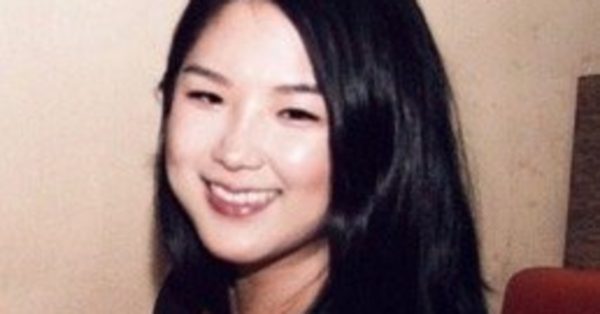

For a long time, I didn’t know that my grandfather came from North Korea. He wasn’t trying to keep it secret. It just wasn’t a big deal.
Now it is. As an international student in the U.S., I’ve fielded many questions about whether I’m from North or South Korea. “What’s the North like?” classmates ask. “Do North Korean people come to the U.S.?”
To me, the answer seems obvious. How could anyone leave or visit North Korea? Leader Kim Jong-un doesn’t allow people in or out. And more recently, President Donald Trump added North Korea to his travel ban.
At age 6, I remember asking my father whether he had visited the north. “It’s not a place you can go,” he said. Armed soldiers heavily guard the border on both sides, separated by a barbed wire fence with spikes on top. I’ve yet to meet a South Korean who voluntarily wanted to go near it. I’ve never ventured more north than Seoul.
But my grandfather, who smiled and rubbed his nose against mine every time he saw me, was born there. “Who’s granddaughter are you?” he said. “Who’s little girl?!”
In 1950, just as the Korean War began, he and 10 of his 12 siblings crossed the border to Seoul.
Before both sides agreed to a cease-fire in 1953, Koreans could still move freely. Like many people, my grandfather and his family pulled wooden carriages, carrying their children and belongings. They felt restricted by a controlling communist government, known to kill citizens who believed in democracy.
So they relocated. The second and fourth oldest children chose to stay behind. One was the highest-ranking official at a train station and didn’t feel the need to uproot. The other wanted to continue her career on the regional ski team. To this day, we don’t know what happened to them. (Since the armistice in 1953, letters and phone calls have been forbidden.)
When his family crossed the border, my grandfather, the third child, was 18. As he started his new life, he decided to make money instead of going to school. He apprenticed with a local photographer and learned to use a camera. Eventually, he started a wedding hall, with an in-house photo studio. But he wanted more.
He had heard about a man who, despite being illiterate, was the richest man in the region. My grandfather visited him. “How can I become like you?” he asked.
His answer: “Whenever I had any money, I bought land. Keep doing that, and it’ll grow before you know it.” So my grandfather started a real estate business and raised four children, emphasizing education because that’s what he missed growing up.
He sent all his kids to private school in Seoul and his nine grandchildren, including me, to top U.S. boarding schools and private universities. The youngest in the family, I was undisputedly his favorite grandchild, earning the nickname “little puppy.” My grandfather pushed my parents to bring me to the U.S. at age 7 and to enroll me in the best schools. My father listened to the man he worshipped and sent me to Fairmont Private School, Rumsey Hall School, Phillips Exeter Academy and now, Northwestern University.
But my grandfather developed Alzheimer’s disease and forgot who I was. He died on his 81th birthday in July 2014.
I never felt that my grandfather was any “different” because of where he was born. He didn’t think he was, either. Yet like the rest of the world, I’m curious to know more about his mysterious homeland.
Fortunately, South Korean TV producers have created at least four television shows hosting defectors. Each week the Moranbong Club brings in a panel of seven different runaways, who dish about their life in North Korea – from their intense, violent military training at age 17 to their escapes across the Tumen River into China and then back to South Korea.
North Korea’s 25 million citizens and South Korea’s 51 million speak the same language but in different dialects. They share similar foods (like naengmyeon, or cold noodles) but prepare them in different styles. They started as one kingdom. But since the end of World War II in 1945, after the U.S. backed the South and Russia installed a communist regime in the north, they’ve officially been enemies. Yet the defectors say North Koreans are taught that the U.S. is the true foe.
Perhaps that’s because many South Koreans, like me, have relatives in the north, even if they’ve never met them. So even more than the rest of the world, I hope for safety and peace for both sides.
more recommended stories
 Fentanyl Seizures at Border Continue to Spike, Making San Diego a National Epicenter for Fentanyl Trafficking
Fentanyl Seizures at Border Continue to Spike, Making San Diego a National Epicenter for Fentanyl TraffickingFentanyl Seizures at Border Continue to.
 Utah Man Sentenced for Hate Crime Attack of Three Men
Utah Man Sentenced for Hate Crime Attack of Three MenTuesday, August 8, 2023 A.
 Green Energy Company Biden Hosted At White House Files For Bankruptcy
Green Energy Company Biden Hosted At White House Files For BankruptcyAug 7 (Reuters) – Electric-vehicle parts.
 Former ABC News Reporter Who “Debunked” Pizzagate Pleads Guilty of Possessing Child pδrn
Former ABC News Reporter Who “Debunked” Pizzagate Pleads Guilty of Possessing Child pδrnFriday, July 21, 2023 A former.
 Six Harvard Medical School and an Arkansas mortuary Charged With Trafficking In Stolen Human Remains
Six Harvard Medical School and an Arkansas mortuary Charged With Trafficking In Stolen Human RemainsSCRANTON – The United States.
 Over 300 People Facing Federal Charges For Crimes Committed During Nationwide Demonstrations
Over 300 People Facing Federal Charges For Crimes Committed During Nationwide DemonstrationsThe Department of Justice announced that.
